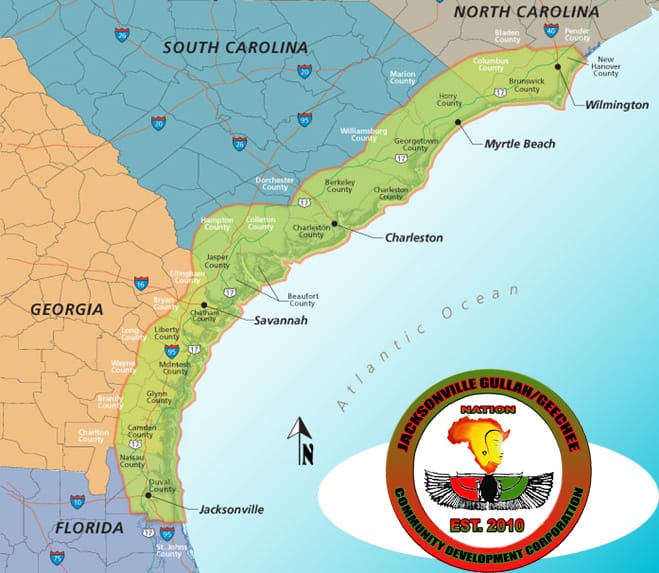
4th Annual Gullah-Geechee Environment and Energy Conference
The focus will be on sharing knowledge regarding the impact of Climate Change, career and business opportunities in green, renewable energy, electric vehicles, and the training of activists to advocate for the community and its role in the future of solar, wind, green hydrogen, and other energy sources.
Communities throughout the sea coast islands have started to seriously engage in collaborative science projects and academic field work that will help build capacity in regard to resilience and sustainability not only for the land and water, but also for our cultural heritage community.
“People say, ‘combat climate change.’ Climate change is not a soldier; I don’t have to go to war with climate change,” Queen Quet, born Marquetta Goodwine, said. “The issue is Anthropocene; it’s human-caused.”
Sea-level rise and climate change are a threat to all who live along the coasts of the Carolinas, Georgia and Florida, but it’s Black communities that bear the brunt. According to Princeton University, higher energy costs, flood risks and ocean acidification disproportionately impact communities of color.
It’s projected Georgia’s coast will see up to 7 feet of sea-level rise by the end of the century. Based on Chatham County projections, that means waters would engulf the majority of Tybee Island and several flood-prone communities on the mainland.
Narratives of resilience to sea-level rise too often perpetuate social violence. An abolitionist climate justice praxis necessitates seeing beyond physical inundation to sea-level rise as the sole issue. We argue that sea-level rise is environmental racism, if not always in its racialized outcomes of disproportionate harms, then always in its racialized production of differential value. More than mitigating flood risk when developing Black land futures strategies, to mitigate coastal land loss in the face of rising seas necessitates dismantling “racial regimes of ownership” that are imbued in property relations.
Recognizing such, Gullah-Geechee folks argue that futures strategies to protect and preserve their lands in the face of rising seas must account for multiple capitalist modes of accumulation but specifically the primitive accumulation process connected to heirs’ property. Here, many argue that racial coastal formations are still underway in how sea-level rise and gentrification are leading to a double dispossession of land and displacing Gullah/Geechee people throughout sea coast Islands. Although such displacement precipitates loss through harm and violence, in this article we share strategies from abolition ecology praxis to “blockade” these double dispossession processes and, to a degree, even the narrative of loss.
To situate the double dispossession narrative within a broader praxis that imagines alternative futures, we till the soil, trace the archives, and tread the marsh and drainage ditches with each other, and in solidarity with other residents, to work toward achieving agricultural revival, property retention, and flood risk mitigation.

